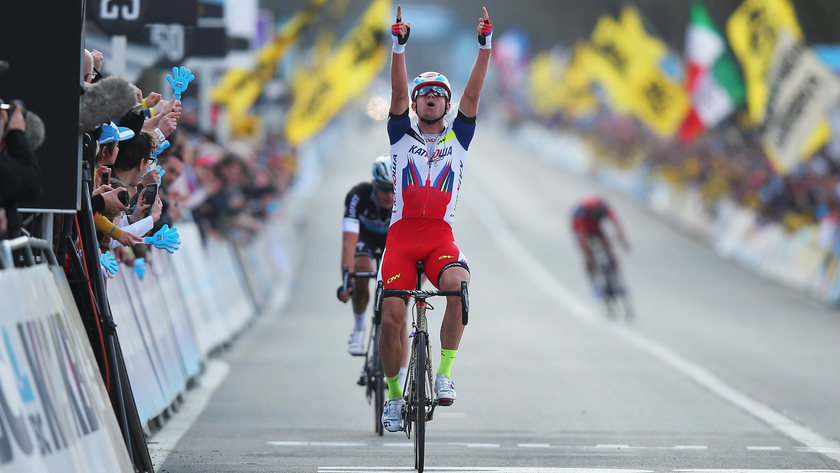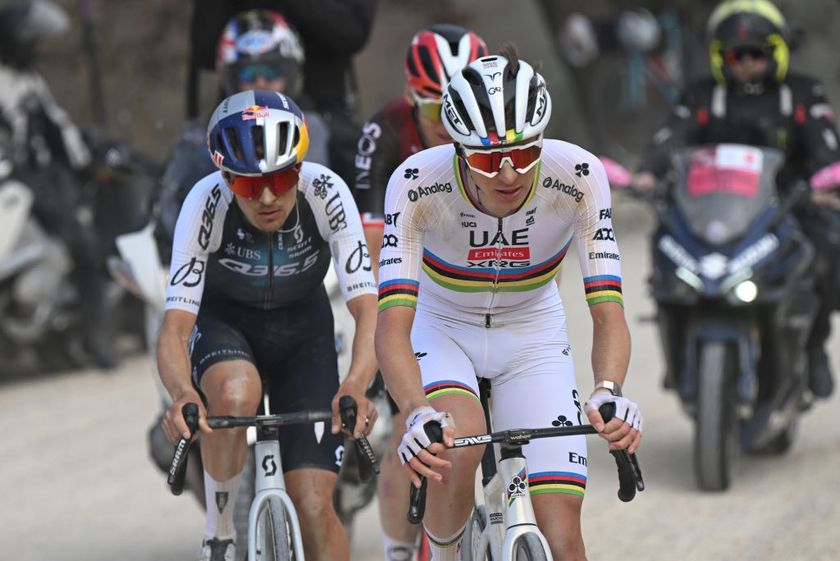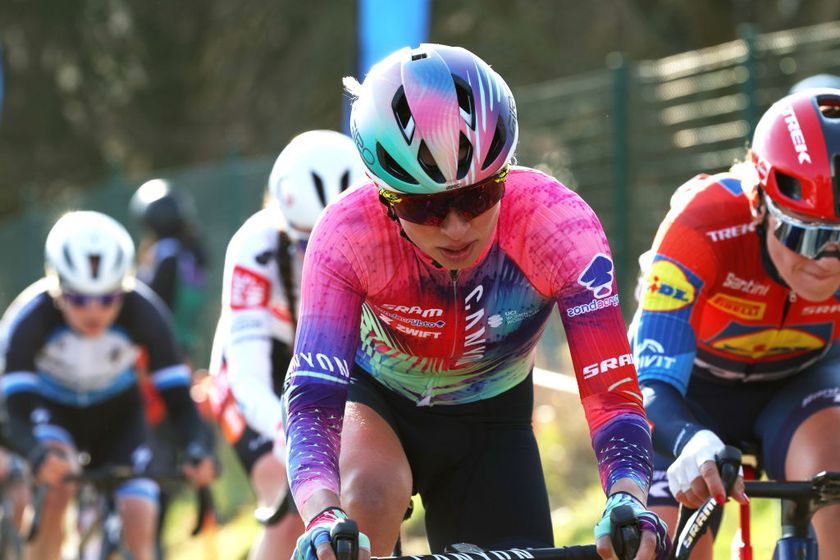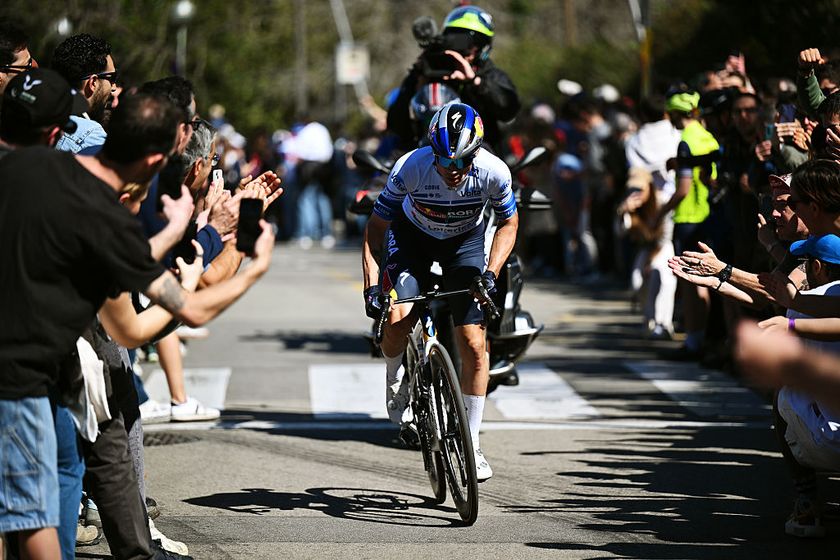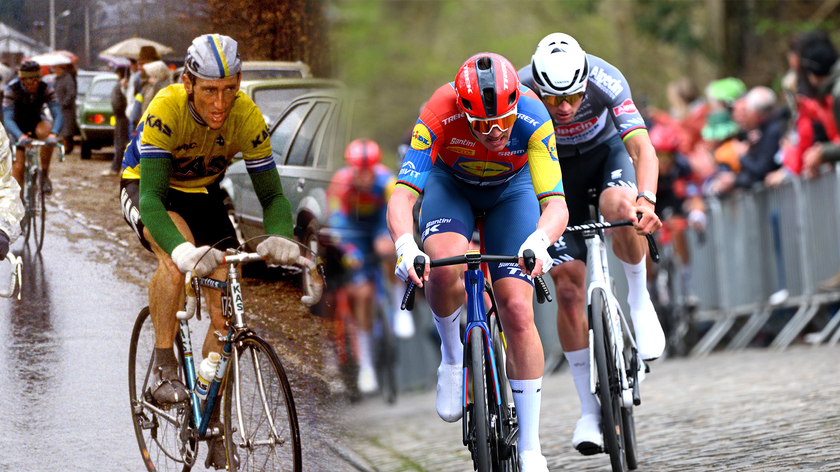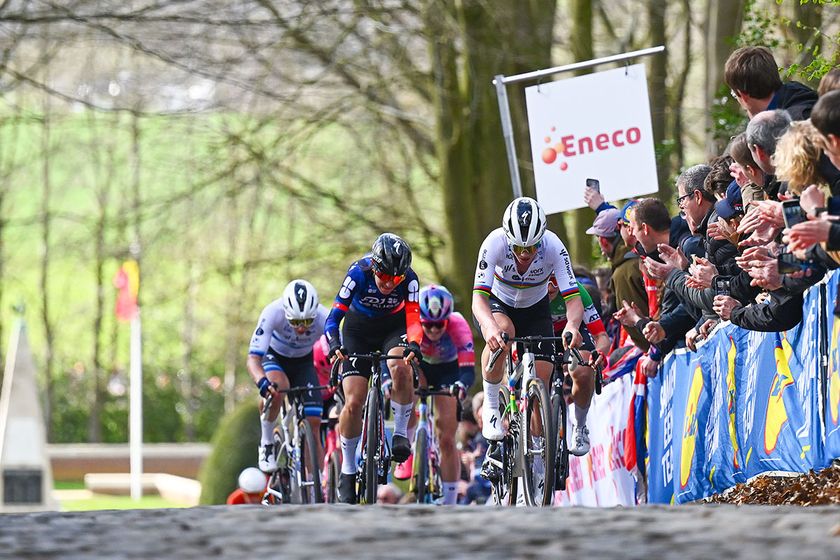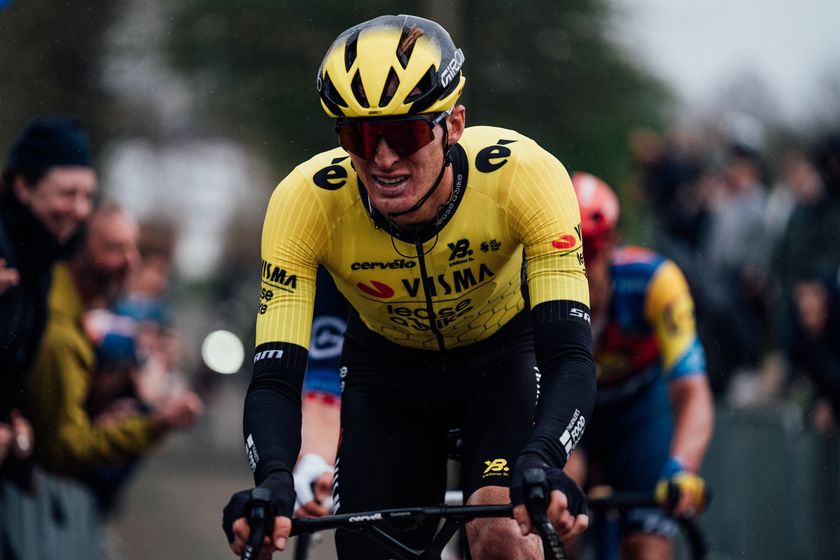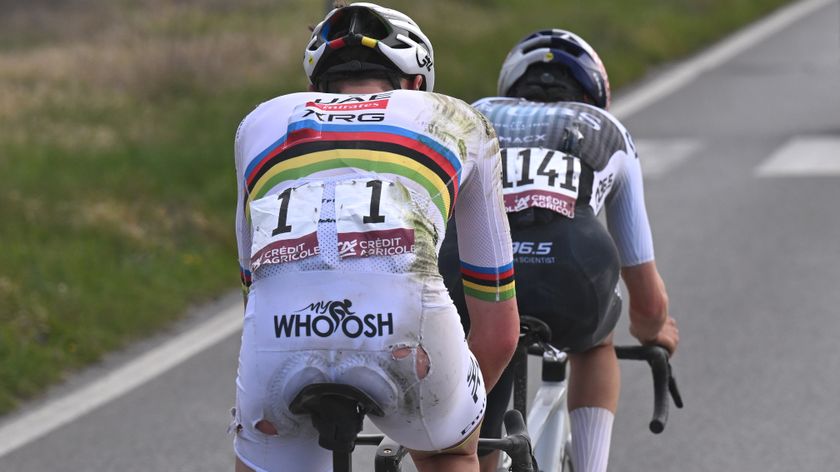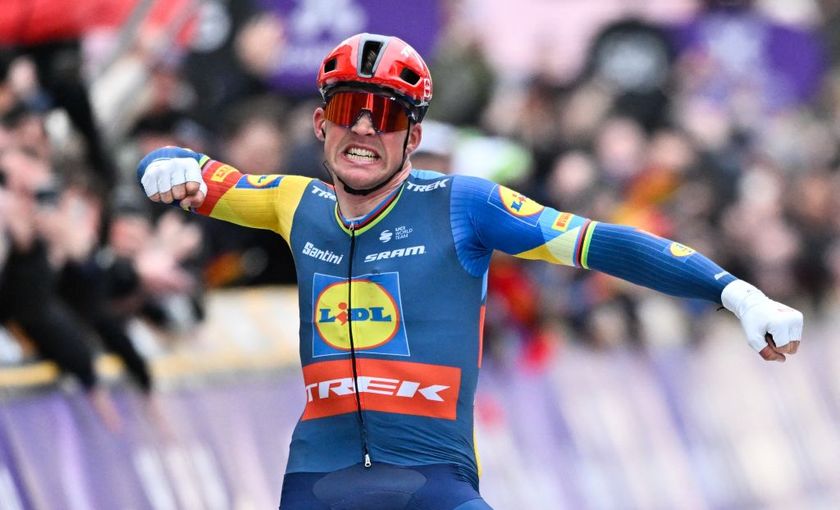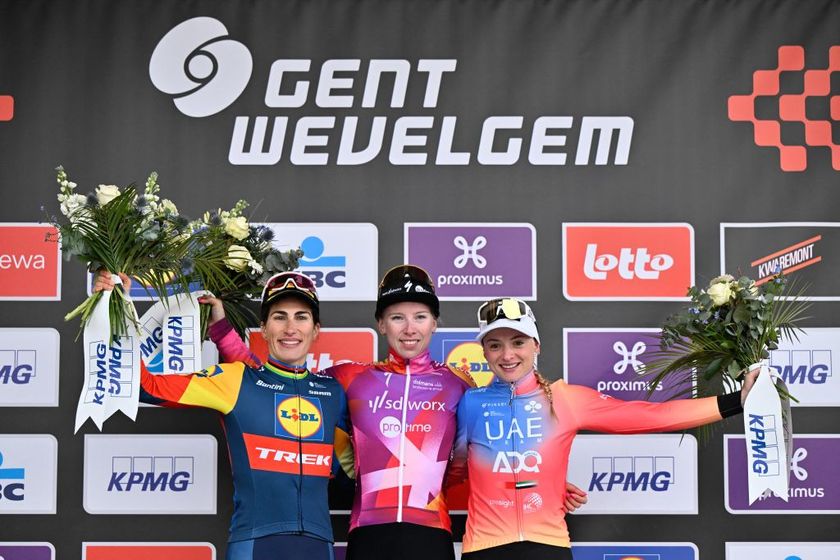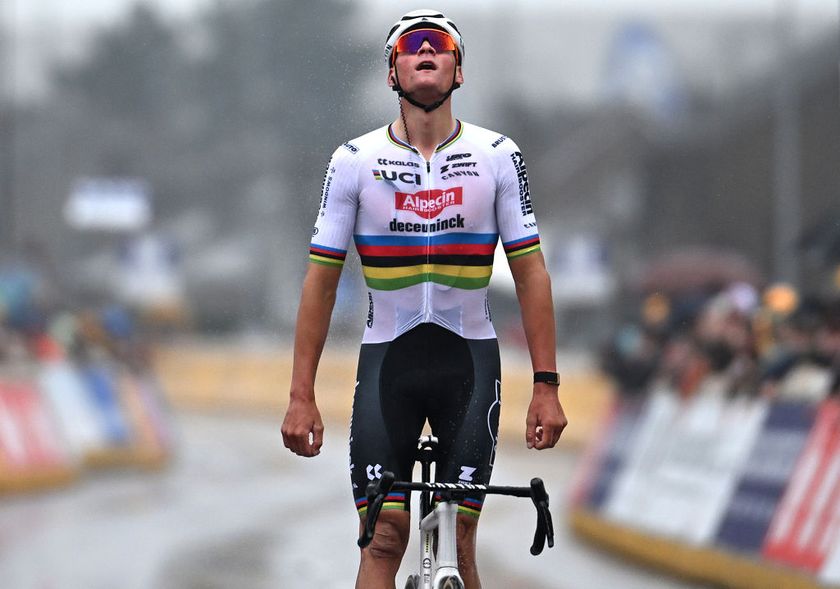War of words over war on doping
UCI and AFLD at odds over drug testing during 2009 Tour


The route of the 2010 Tour de France was announced Wednesday in Paris, but the dust has not fully settled on the 2009 edition. Last week the UCI and the AFLD had a public war of words about testing conducted during this year's race. Cyclingnews' Shane Stokes reports.
Things have seemed peculiarly quiet on the political front for quite some time but the calm was shattered last week when the AFLD and the UCI had a very public tête-à-tête over the 2009 Tour de France.
The AFLD, France's national anti-doping agency, published a report into the testing processes at this year's Tour. It was scathing of the UCI, faulting the governing body's testers in a number of areas. It accused them of bias towards the Astana team of eventual winner Alberto Contador and seven-time champion Lance Armstrong, both in testing the team last in the morning health checks, and also in permitting a near one-hour delay while the testers had coffee with team officials.
Other criticisms included the improper storage/transportation of samples in non-chilled containers, the incorrect labelling of samples as being out-of-competition (and thus being liable to testing for fewer substances) and excessive amounts of time being given for notification of post-stage controls.
The UCI inspectors were even accused of loudly discussing the details of planned testing while in the vicinity of riders.
Because of the previous tension between Tour organisers ASO and the UCI over the ProTour, the AFLD had sole responsibility for the conduction of controls in 2008. A large number of positive tests were detected, including stage winners Riccardo Ricco, Leonardo Piepoli and Stefan Schumacher, as well as third-place finisher and King of the Mountains winner Bernhard Kohl. These were all caught out by a new test for the third generation EPO substance CERA.
The UCI and the French agency then worked together on this year's Tour. However, in contrast to 2008, there were no positive tests. AFLD President Pierre Bordry has also questioned this, saying that he found it suspicious.
Get The Leadout Newsletter
The latest race content, interviews, features, reviews and expert buying guides, direct to your inbox!
Cyclingnews has requested but not yet received an interview with Bordry or other representatives of the AFLD. However, the UCI has responded to questions about the matter, with its president Pat McQuaid saying that the governing body is studying the criticism and will compile its own report on the questions raised.
"We are looking into the points that they have made, the various accusations that they have made," he said on Monday. "I am not the one compiling the responses so I don't know the details point by point. But we will come back with a very strong rebuttal of their position."
Reactions to the disagreement
The public spat between the two bodies has, of course, wider repercussions. The fight against doping is a multi-million Euro push and one which requires political, scientific and sporting co-operation in order to maximise the efforts. When that co-ordination breaks down, as appears to be the case here, it means that fight is not working as efficiently as it should. The only people who benefit then are those that the tests are designed to catch.
Anti-doping expert Michael Ashenden has connections with both the UCI and the AFLD, being part of the expert panel for the biological passport for the former, and collaborating on research projects with the latter.
When Cyclingnews contacted him he had not yet seen the AFLD report and therefore could not comment on the specific issues raised. However, the Australian agreed that the tensions did not help the anti-doping fight. "Obviously it makes it more difficult when two key stakeholders are feuding," he said.
Danish anti-doping scientist Bo Belhage said that he also hadn't studied the situation, but wasn't sure that airing grievances in the media prior to submitting the report was the best possible tactic to use. "In general, if you have issues between two partners, you should not try to solve it through the press before you have tried to solve it through normal communication," he said.
The World Anti-Doping Agency (WADA) oversees the global fight against the misuse of substances and methods in sport. Its Director General confirmed to Cyclingnews that it is in contact with both organisations over the issue. "WADA received the AFLD report this week and is communicating with the UCI for clarification," said David Howman. "This matter is one for the AFLD and the UCI to determine, and, if there is a role for WADA, we will consider how we can assist.
"As the custodian of the World Anti-Doping Code, WADA's concern is that Code-compliant rules are in place and applied to all cycling events."
At this point in time, the UCI and the AFLD appear to be at completely different viewpoints about the testing during the 2009 Tour de France. The French agency alleges incompetence in the way that the testing was done and, even worse, suggests that the UCI did not treat all teams equally, but favoured Astana.
Going public with the Tour 2009 report
McQuaid's biggest faulting of the AFLD seems to be the manner in which it communicated its concerns. Rather than doing so via its report to the UCI and WADA, the issues raised were released to the media before the UCI could study them. The Irishman claims this was inappropriate and unprofessional.
"They had a concern about the Astana situation during the Tour. They came to us with it, we addressed it, dealt with it, and as far as we were concerned the situation was over," he said. "We explained what actually happened, our side of the story, but they went and brought it up again last week as the main element of their report.
"It was just a publicity-seeking stunt of the AFLD. As I said, they were a partner of ours. In a partnership you work together. There may be mistakes made on one side or the other, but you discuss them and then you move on - that is the way normal partnerships go. But instead they put details of the report out before I even received it.
"I got the report by email at 9:20 a.m. on Monday morning. It was already [published] in Le Monde at that point. That is not operating as a partner, and we completely disagree with that strategy."
In a press release issued last Monday, the UCI made it clear that it was not happy. It said that it was studying its options to collaborate with a neutral partner. But rather than back down, the AFLD reiterated its criticism at the press conference it held two days later.
"The controls were not carried out in conformation with the rules. Manipulations were possible," said Bordry.
"I won't be asking to work with the UCI doing the controls in 2010. International [sporting] federations must understand that when it comes to anti-doping you have to be rigorous and transparent, otherwise doubts are raised which may not be founded, but which are justified by the absence of transparency."
Best strategy?
Logically, someone has to run the testing at the 2010 Tour de France. If they won't work together, one or other will have to stand aside. According to McQuaid, that will be the AFLD.
"The UCI is the one that is responsible for testing," he insisted. "According to the WADA Code, the international federation has the authority over all international events in different territories. The same applies to all sports. There is no question that the AFLD could end up running it instead of the UCI."
If so, it appears that the French anti-doping agency has effectively removed itself from its part in supervising the world's biggest annual event. It clearly had concerns about how things were done this year, but due to its public blasting of the UCI before the governing body - and WADA - read and responded to the report, it has painted itself into a corner.
Many observers of the sport applauded the work the agency has done in the past two years, with more and better tests being conducted than before. The AFLD got due credit for working hard to detect those who were cheating. But, as things have turned out, it's hard to know what it has gained other than a few days of high profile media attention. As Belhage suggested, a better strategy might have been to voice its concerns to the UCI and WADA via its report, then use the media as a last, rather than a first, resort.
What's clear is that neither the UCI nor the AFLD have come out of this looking particularly good. The governing body has had its objectivity questioned by a prominent anti-doping agency and, rightly or wrongly, further ammunition has been given to those who feel that the links between the UCI and certain teams or riders are too close.
As for the AFLD, speaking to the press before the UCI and WADA had received and fully digested the report laid the agency open to the UCI's inevitable counter-claims that it is motivated by media attention. Amid the accusations and recriminations, there's a danger that the full picture about testing in the 2009 Tour might be lost. In that case, the anti-doping fight is the biggest casualty.
